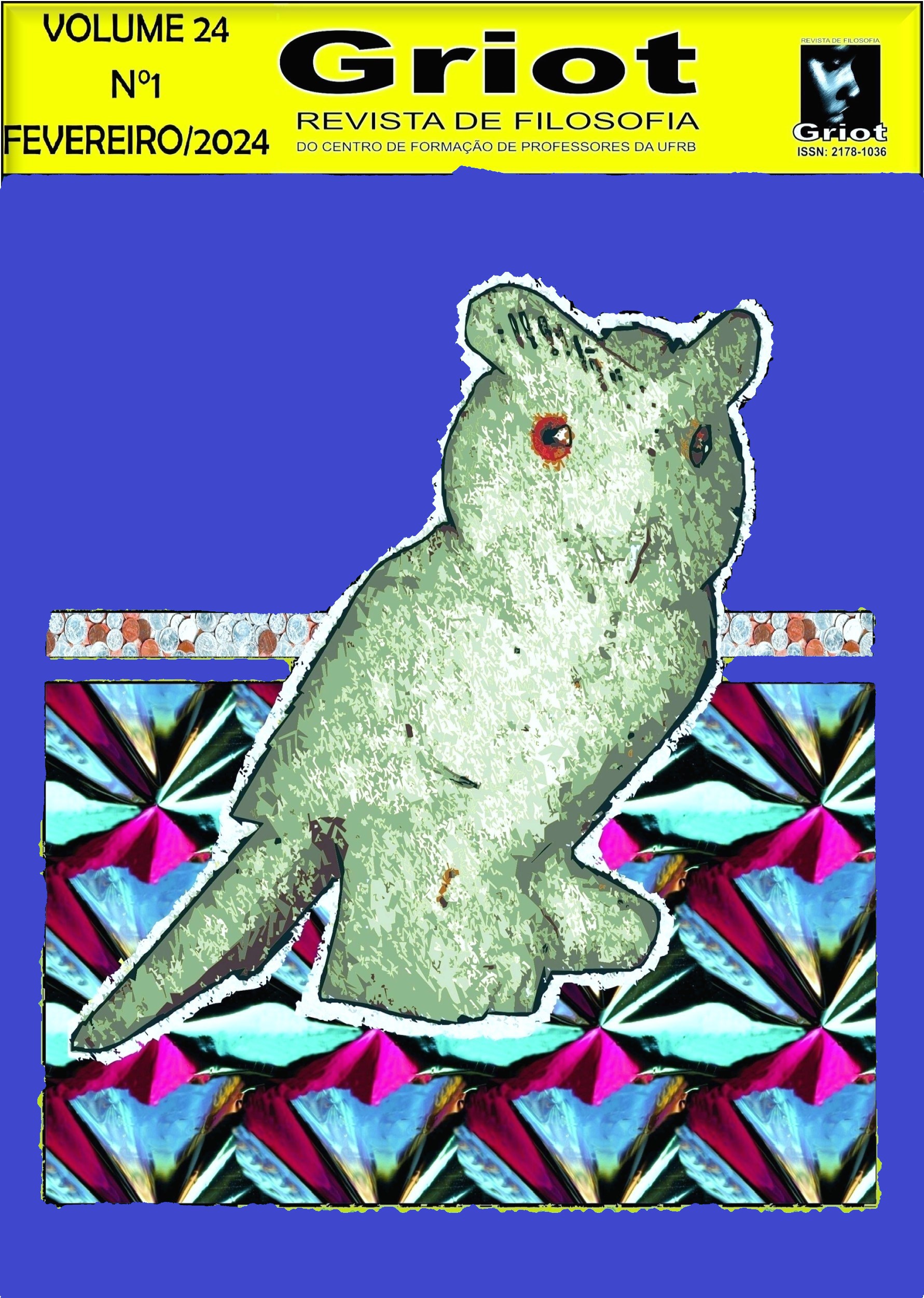Narration, art and politics of just memory: Paul Ricoeur read from a brazilian perspective
DOI:
https://doi.org/10.31977/grirfi.v24i1.3574Keywords:
Fair memory; Narration; Ideology; Myth of racial democracy; Official history.Abstract
It is about analyzing the connection between just memory, narration and art, using an approach that mixes philosophy and visual arts. We will start from the perspective of the French philosopher Paul Ricoeur on fair memory, presented in his work Memory, History, Oblivion (2000), according to which there is an institutionalized ideologization of memory in which narrations are silenced or distorted by the so-called official history. In the process of recovering fair memory, these narratives need to be heard, recognized and valued, deconstructing abusive mechanisms that silence them with the aim of producing oblivion or that manipulate them involve distorting the facts to benefit hegemonic discourses. Next, we will discuss how the myth of Brazilian racial democracy is an example of institutionalized ideologization of memory, considering mainly the reflections of Brazilian philosophy Sueli Carneiro in Device of raciality (2023). Finally, we will show how Elian Almeida's pictorial counter-narratives, especially the Vogue series (2020), work to strengthen and disseminate unofficial narratives about Brazil that have been suffocated by official history.
Downloads
References
ANDRADE, Deri. Conversa com artista: Elian Almeida e a performatividade do corpo negro. Projeto Afro, 24 set. 2020. Disponível em: https://projetoafro.com/editorial/entrevista/conversa-com-artista-elian-almeida-e-a-performatividade-do-corpo-negro/. Acesso em: 11 set. 2023.
CARNEIRO, Sueli. Dispositivo de racialidade: a construção do outro como não ser como fundamento do ser. Rio de Janeiro: Zahar, 2023.
FAZOLLA, Leandro. Elian Almeida. DASartes, ano 13, ed. 112, 2021.
FERNANDES, Florestan. A integração do negro na sociedade de classes. São Paulo: Cia. Editora Nacional, 1965.
FREYRE, Gilberto. O Brasil em face das Áfricas negras e mestiças. Rio de Janeiro: Federação das Associações Portuguesas, 1962.
GAGNEBIN, Jeanne Marie. Os impedimentos da memória. Estudos Avançados, v. 34, n. 38, p. 201-217, jan.-abr. 2020.
GOMES, Flávio; LAURIANO, Jaime; SCHWARCZ, Lilia. Enciclopédia negra. São Paulo: Companhia das Letras, 2021.
GONZALEZ, Lélia. Por um feminismo afro-latino-americano: ensaios, intervenções e diálogos. Rio de Janeiro: Jorge Zahar, 2020.
GONZALEZ, Lélia; HASENBALG, Carlos. Lugar de negro. Rio de Janeiro: Marco Zero, 1982.
GUIMARÃES, Antonio Sérgio. Democracia racial: o ideal, o pacto e o mito. Novos Estudos Cebrap, v. 3, n. 61, p. 147-162, nov. 2001.
HALL, Stuart. A identidade cultural na pós-modernidade. Tradução de Tomaz Tadeu da Silva e Guaracira Lopes Louro. Rio de Janeiro: DP&A, 2006.
MICHEL, Johann. Peut-on parler d’une politique de l’oubli?, 2011. Disponível em: http://usagespublicsdupasse.ehess.fr/peut-on-parler-dune-politique-de-loubli/. Acesso em: 11 set. 2023.
PAULINO, Rosana; FELINTO, Renata. Violenta geometria. Revista Zum, n. 19. Disponível em: https://revistazum.com.br/revista-zum-19/violenta-geometria/. Acesso em: 11 set. 2023.
RICOEUR, Paul. A ideologia e a utopia. Tradução de Sílvio Rosa Filho e Thiago Martins. Belo Horizonte: Autêntica, 2015.
RICOEUR, Paul. A memória, a história, o esquecimento. Tradução de Alain François et al. Campinas: Editora Unicamp, 2007.
RICOEUR, Paul. La marque du passé. Revue de Métaphysique et de Morale, n. 1, jan.-mar, p. 7-31, 1998.
RICOEUR, Paul. O passado tinha um futuro. In: MORIN, Edgar (org.). A religação dos saberes: o desafio do século XXI. Rio de Janeiro: Bertrand Brasil, 2004. p. 369-378.
SOUZA, Jessé. Democracia racial e multiculturalismo: a ambivalente singularidade cultural brasileira. Revista Estudos Afro-Asiáticos, n. 38, p. 135-155, dez. 2000.
WEBER, Max. Economia e sociedade: fundamentos da sociologia compreensiva. v. 1. Tradução de Regis Barbosa e Karen Elsabe Barbosa. Brasília: Editora UnB, 1999.
Downloads
Published
How to Cite
Issue
Section
License
Copyright (c) 2024 Leonardo Barros

This work is licensed under a Creative Commons Attribution 4.0 International License.
The authors who publish in Griot: Revista de Filosofia maintain the copyright and grant the magazine the right of first publication, with the work simultaneously licensed under the Creative Commons Attribution 4.0 International License, allowing sharing and adaptation, even for commercial purposes, with due recognition of authorship and initial publication in this journal. Read more...









































































